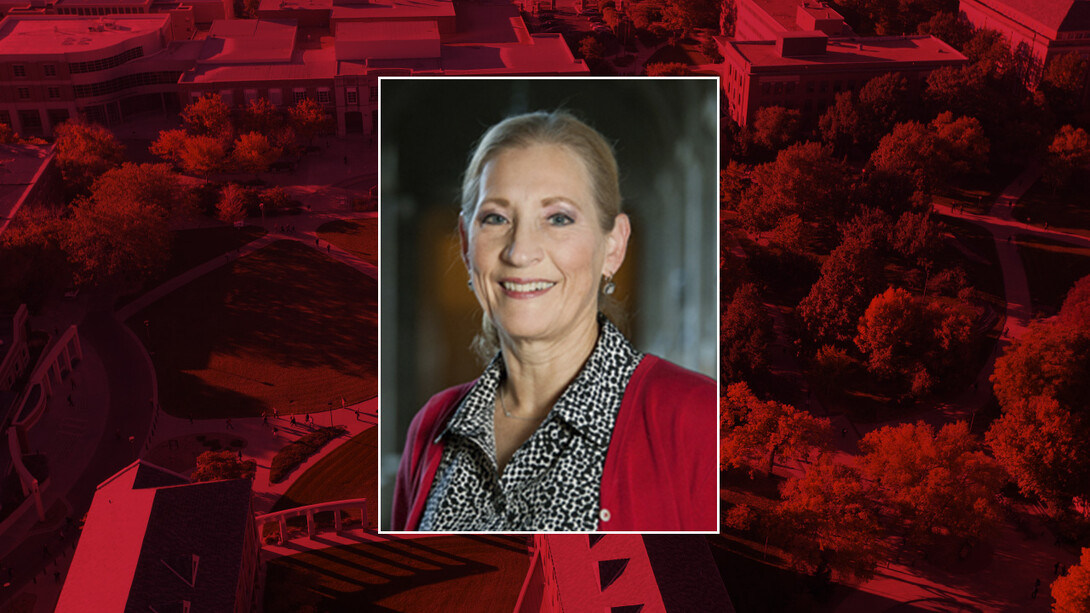
Kate Speck’s colleagues marvel at how many people she knows across the state.
It’s just one of the things they will miss when she retires at the end of October as senior research manager at the University of Nebraska Public Policy Center.
The connections around the state come from Speck’s years of training professionals about suicide prevention, substance abuse and other mental health issues as well as about ethics and wellness.
“She thinks about outreach on steroids — how to get information out to people to help their lives … or to help them get friends help. That’s what Kate does,” Mario Scalora, the center’s director said.
Countless clinicians and counselors have received Speck’s training on outreach done in ways that evidence shows will make a difference. Speck said her specialty in educating professionals has been fulfilling and met her need to continue her own learning.
Speck has worked at the Public Policy Center since 2007 and her final year has been focused on helping to launch a multi-agency suicide prevention effort funded by a federal grant — about $700,000 a year for five years.
Nebraska has received a number of suicide-prevention grants over the years. Suicide, the state’s 10th leading cause of death overall, is the third leading cause of death for ages 15-24.
This latest grant is focused on 16 counties in southeast Nebraska that, on average, had higher rates of youth suicides. The goal is to reduce the youth suicide rate in those Region V counties by 80% by 2024.
Public school districts, healthcare systems and behavioral health organizations in the region are all slated to receive training in Assessing and Managing Suicide Risk protocols and in following up with youth after a suicide attempt and with families and communities after a death by suicide.
Don Belau, a school psychologist who specializes in suicide prevention, has worked with Speck for about 15 years.
“There’s only one Kate,” Belau said. “She has quite a legacy.”
According to Belau, Speck is one of the top trainers in the country and participated in revising the Assessing and Managing Suicide Risk protocols that are considered the best, most effective practices. Speck keeps state professionals well informed about new research nationally and internationally.
“She’s able to provide leadership because she has absolute compassion and support for people who work in this field,” Belau said.
Scalora and Denise Bulling, senior research director, said Speck is particularly skilled in motivational interviewing, a method of moving people toward change through guided conversation.
The most powerful change comes, Speck said, when someone is motivated to change versus doing what someone else wants them to do.
People gravitate to Speck and find her easy to listen to. Scalora called her a “counselor’s counselor,” stating she can get even the most defensive person to open up.
Bulling said Speck holds the attention of conference-goers by making sure what she’s offering is practical.
Speck may have learned about adult education by being an adult student herself. As a mother of two, Speck didn’t start college until 1989 when she was in her late 30s, taking classes one at a time. She earned her bachelor’s in human resources from Doane College and went on to earn her master’s and Ph.D. from the University of Nebraska–Lincoln. Speck’s job at the Public Policy Center is the best job she’s ever had because of the leadership, her colleagues and how meaningful the work is.
In retirement, she will continue doing some consulting work, and she plans to take a course in mediation. She’ll continue to spend time with her three grandchildren, stay active with bicycling and walking and carry on baking sourdough bread — something, she points out, she was doing before COVID-19 sheltering made it popular. She hopes a postponed trip cycling in Croatia will be back on in 2021.
At the Public Policy Center, Speck’s job on the suicide prevention grant will be carried on by Bulling and research specialist Quinn Lewandowski.
“It takes two of us to fill Kate’s shoes,” Bulling said.







